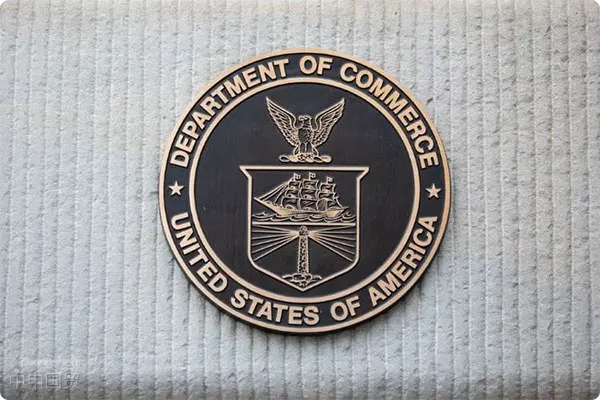- Shanghai Zhongshen International Trade Co., Ltd. - Two decades of trade agency expertise.
- Service Hotline: 139 1787 2118
On March 28, 2024, the U.S. Department of Commerces Bureau of Industry and Security (BIS) released an updated version of the Dont Let This Happen to You guide to help businesses comply with U.S. export control laws and regulations. The report details BISs mission, organizational structure, enforcement priorities, and outcomes of various violation cases in export control and enforcement. This article highlights penalties for export control violations, BISs enforcement priorities, and specific compliance recommendations.

I. Penalties for Export Control Violations
Scope of Penalties
(a) Criminal Penalties:Violators who knowingly violate the U.S. Export Administration Regulations (EAR) may face up to 20 years imprisonment and a fine of up to $1 million per violation.
(b) Administrative Fines:Up to $364,992 per violation or twice the transaction value, whichever is higher.
Enhanced Transparency in BIS Penalty Guidelines
BIS has detailed the process for determining appropriate penalties through the Guidelines for Settlement Charges and Penalty Determinations in Administrative Enforcement Cases, including aggravating factors (such as intentional violations, harm to regulatory program objectives) and mitigating factors (such as remedial measures, special cooperation with BIS).
Encouragement of Voluntary Self-Disclosure
BIS encourages companies to voluntarily self-disclose violations and offers penalty reductions for submitting effective self-disclosures to recognize compliance willingness.
Denial of Export Privileges
BIS has the authority to deny export privileges under the EAR to any individual or entity for up to 10 years. After denial, any participation in exports, reexports, or in-country transfers subject to EAR regulation will be deemed illegal.
Managed Lists and Asset Forfeiture
BIS administers four restrictive lists: the Denied Persons List, Entity List, Unverified List, and Military End-User List. Violating entities may be added to BIS-managed lists, and assets derived from illegal activities may face forfeiture.
The guidelines clarify BISs enforcement priorities: national security risks, military end-uses, proliferation of weapons of mass destruction, and firearms/sanctioned items. The focus is on preventing illicit acquisition of EAR-controlled items by state actors posing serious threats to the U.S.
II. BIS Export Control Compliance Recommendations
Identification of Responsible Parties
All parties involved in EAR-regulated transactions must comply, including both U.S. domestic entities and foreign entities.
Importance of Due Diligence and Compliance Programs
(a) Export transaction compliance depends on multiple factors, including identification and understanding of items, destinations, end-users, and end-uses.
(b) Companies should establish export control compliance systems. BIS particularly emphasizes eight guiding principles for effective compliance programs, ranging from management commitment to plans for addressing compliance issues.
Control of Items
The key is determining whether exported items have specific ECCNs, which affects whether an export license from BIS is required.
Companies cannot circumvent EAR by shipping items through third countries and must pay special attention to compliance requirements for transshipment and reexport.,
Controls Based on End-Use and End-User
BIS also regulates item exports based on their intended end-uses and end-users, such as sensitive fields like missile or nuclear weapons programs.
Sanctions Programs
The U.S. imposes extensive export controls and sanctions on certain countries. Companies should familiarize themselves with and adhere to these restrictions.
Successor Liability and Cybersecurity
M&A due diligence should include export control compliance reviews to avoid successor liability. Meanwhile, BIS emphasizes the importance of preventing cyber intrusions and data theft.
Key Explanation of Transshipment and Reexport Compliance Requirements
(1) TransshipmentRefers to the process of shipping goods, software, or technology from one country to another, then to a third country.
(2) ReexportMeans the transfer of U.S.-origin items (including items manufactured in the U.S. and modified, altered, or refurbished foreign-made items) from one non-U.S. country to another non-U.S. country.
Legal Framework
Under EAR, nearly all items, software, or technology exported from the U.S. must comply with U.S. export control regulations when transshipped or reexported. This means that in some cases, even after items leave the U.S., their reexport or transshipment still requires U.S. government authorization.
Compliance Requirements
Understand Regulatory Requirements:Exporters and re-exporters must first determine whether the items involved are subject to EAR controls and understand any specific regulatory requirements. This includes checking the Export Control Classification Number (ECCN) of the items and the controls applied to the destination country.
Licensing Requirements:If specific licenses are required for the items, software, or technology during transit or re-export, the relevant parties must apply for and obtain licenses from BIS. Different ECCNs and destination countries may imply different licensing requirements.
Comply with Catch-All Controls: Even if certain items are not controlled due to their technical characteristics, they may still require licenses based on their end-use or end-users (such as military applications or involvement in weapons of mass destruction).
Due Diligence:Exporters and re-exporters should conduct due diligence to ensure their transactions do not violate U.S. export control regulations. This includes verifying the identities of all parties involved, ensuring they are not listed on any embargo lists, and confirming end-use and end-user information.
Record Retention: Relevant parties must retain all transaction records related to exports, transshipments, and re-exports in accordance with EAR requirements, typically for five years.
In summary, these guidelines aim to strengthen export control enforcement and curb violations that threaten U.S. national security. As the global trade environment continues to evolve, businesses must remain vigilant and adapt to updates in U.S. and other countries export control laws to avoid severe penalties and significant losses.
Related Recommendations
Core Business
Contact Us
Email: service@sh-zhongshen.com
Related Recommendations
Contact via WeChat

© 2025. All Rights Reserved.沪ICP备2023007705号-2 PSB Record: Shanghai No.31011502009912
PSB Record: Shanghai No.31011502009912








